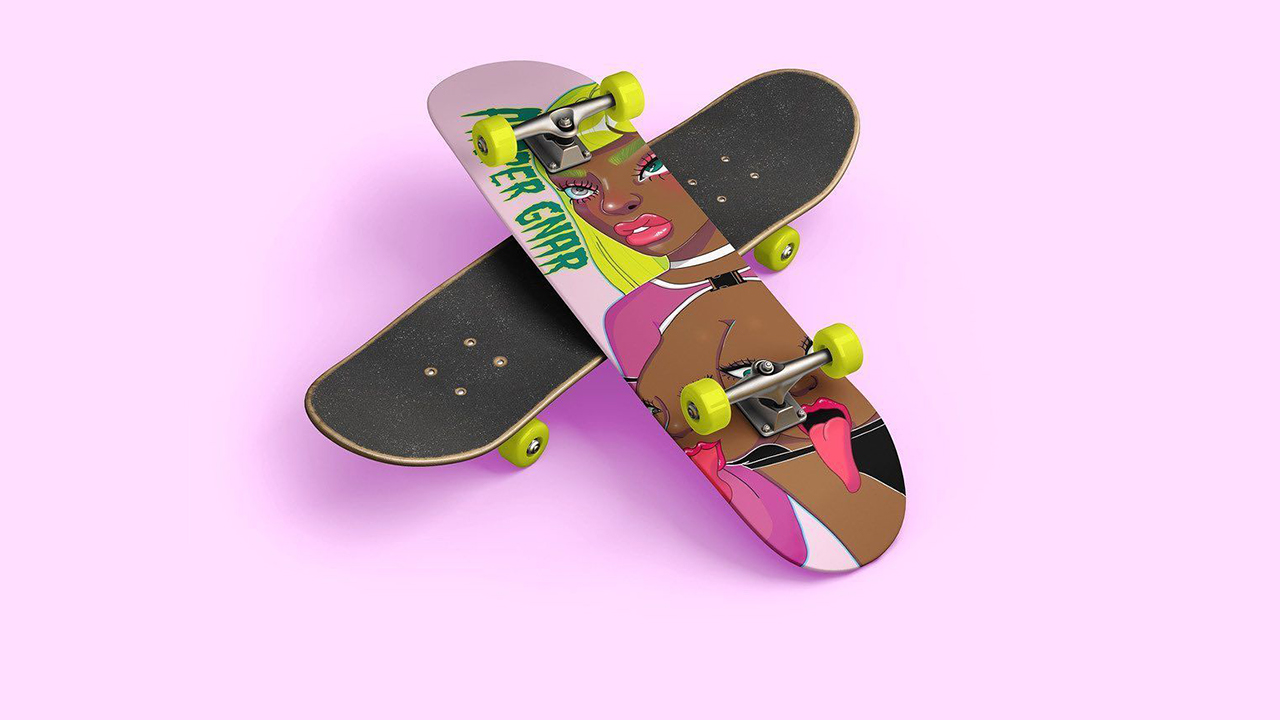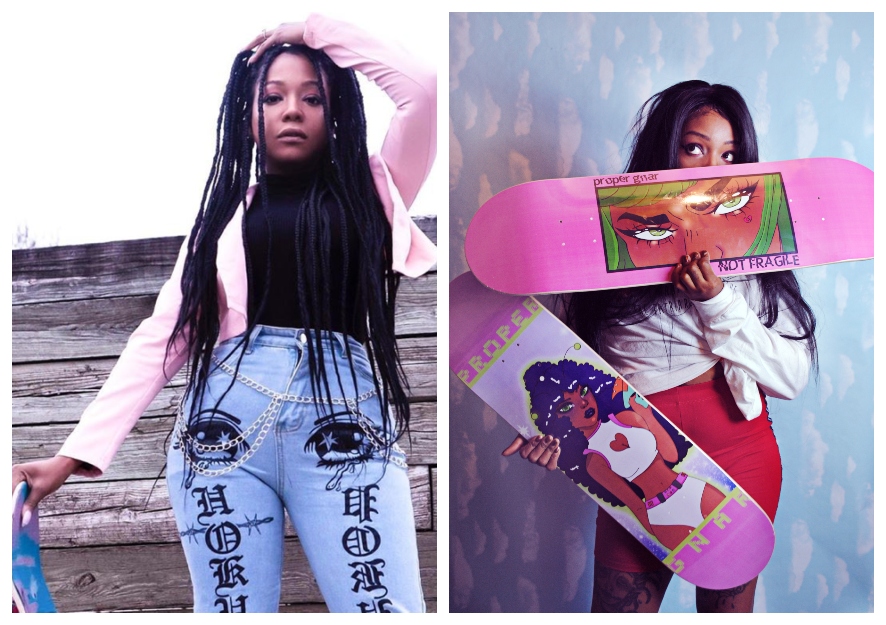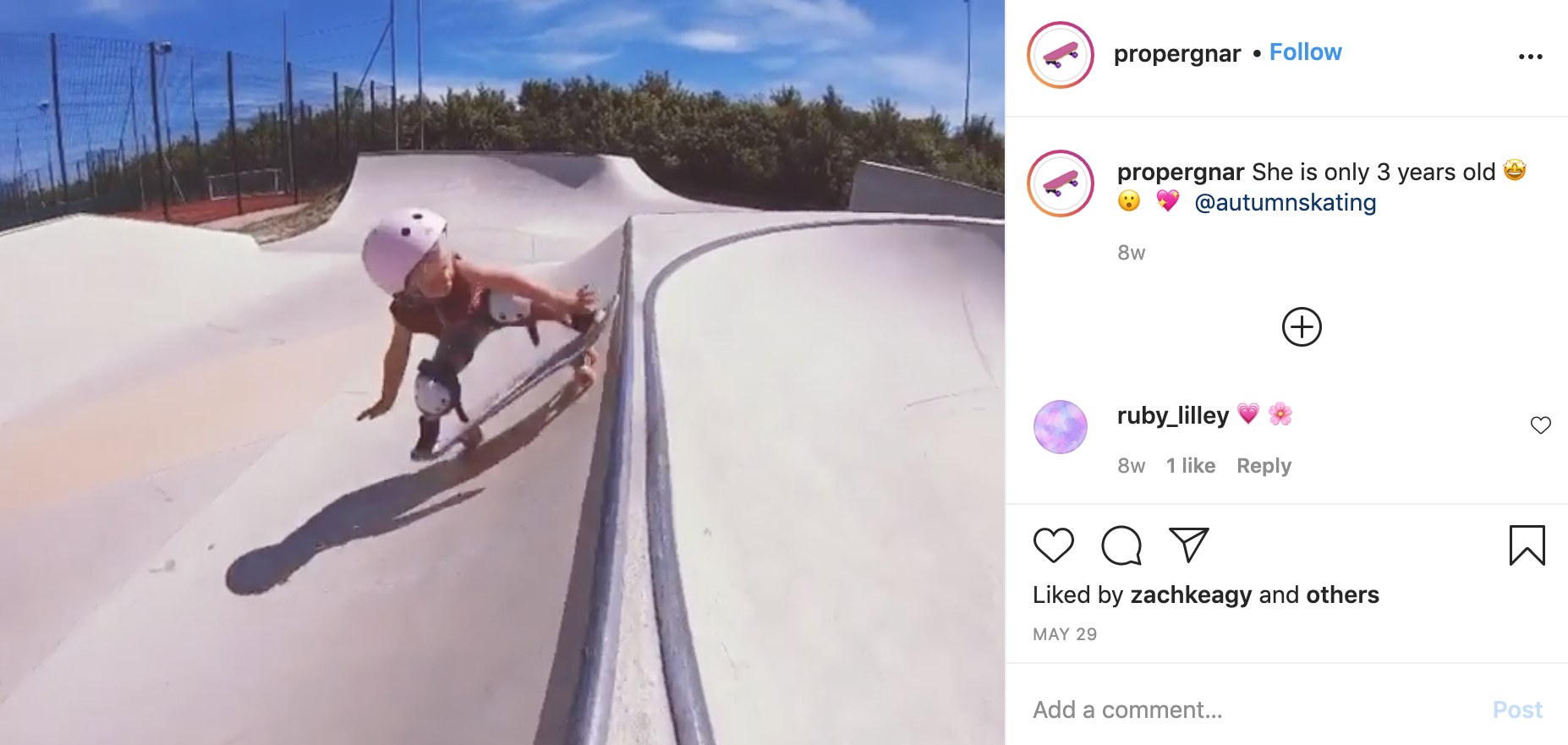
Black woman-owned skateboard company embraces girl power
July 31, 2020
Founded by artist Latosha Stone in 2013, Proper Gnar is the first and only Black woman-owned skateboarding company in the US. The streetwear brand focuses on skateboarding and girl power with the goal of breaking through the male dominated sport and creating a platform for female skaters in the US.
“Skateboarding has traditionally been a man’s sport, which is why I am so passionate about my role as a Black woman who challenges past assumptions and shows that skateboarding is for all of us. I take pride in creating authentic and beautiful art that stands out from other skate brands,” says Stone. “I live and breathe skating and art, and I think that is reflected in the work I produce.”

The skateboard company and lifestyle brand rose in popularity following its recent feature on artist Beyoncé Knowles’ Black Parade Directory of Black Owned Businesses, which is a list of small businesses that use their Black identity as a form of protest and activism.
Stone’s skateboards were also recently featured on HBO’s TV show about skater girls, ‘Betty’. The brand sells colourful, creative and original skateboards that are created with teen girls and young women in mind who love to skate or who are into alternative and subversive fashion.
As Stone shares on her website, “very few women skateboarders get the sponsors, attention, and support they deserve. I want to change that. I sponsor a small but growing all girls skate team and hold skate contests and meet ups.”

The Black skateboarding scene has experienced an uptick in popularity in recent years. In 2016, VIBE magazine dissected the millennial resurgence of Black skateboarders, noting that the subculture ‘has its own history’ within the Black community. It surged in popularity in the 1960s but fell off during the ‘70s due to a belief that skating was ‘kids’ stuff’, as well as a scarcity of skateparks in Black neighborhoods.
Stone contributes to bringing more women to the sport through her sponsorship of women skateboarders that are often overlooked by larger companies. “I believe that representation is the key to having more young girls interested in skating,” Stone says. “Genuinely loving skateboarding means you have to advocate and support it when you can.”
This story originally featured on BlackNews.com.